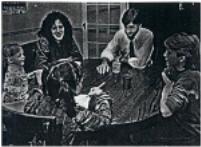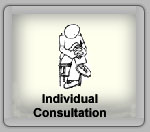Family Meeting
Can a six-year old run a meeting? With some help and some guidelines, the answer is yes.
At the Family Education Center, we help families develop and practice the skills to nourish their relationships. One of the tools we use and teach is the family meeting, which is a meeting held in a mutually supportive, encouraging, agreed-upon format. All members of the family participate in the meeting, even young children.
In today’s harried, time-pressed family, the opportunities to spend time with each other are often more limited than they were in earlier times. Shows like “Leave it to Beaver” and “Father Knows Best” depict times when parents and children had the luxury of long, heartwarming conversations around the family dinner table. Family meetings are designed to fill that gap.
|
Benefits of family meetings
Lack of effective communication is one of the major symptoms of troubled families. Not talking or listening to each other contributes to other, deeper problems, including thwarted development, unresolved emotional problems and mental illness, and even drug and alcohol abuse. Family meetings provide an opportunity to avoid these problems by fostering rich, deep communication.
But who is in charge?
Family Meeting is a powerful process. Parents and children treat each other respectfully during the meeting. Parents do not dominate, or impose their opinions until all feelings and opinions have been heard.
The meetings are run by a chairperson, who can be parent or child. Another family member acts as secretary, recording any decisions made at the meeting.
Based on good communication
Good communication requires willingness to listen and respond, to give and receive, and to acknowledge what is being communicated without manipulating, limiting or denying reality. Good communication is the ability to openly express one’s own feelings and thoughts without judgment. Good communication is respectful of all concerned.
Communication includes not only words, but also facial expression, intonation, volume, touch, and body movement.



